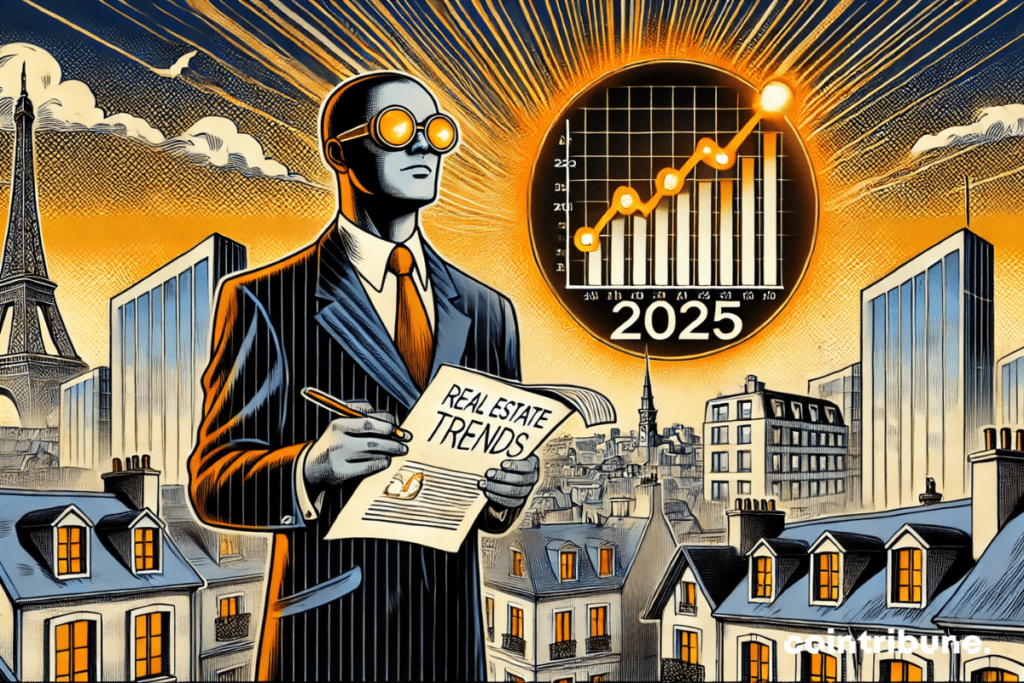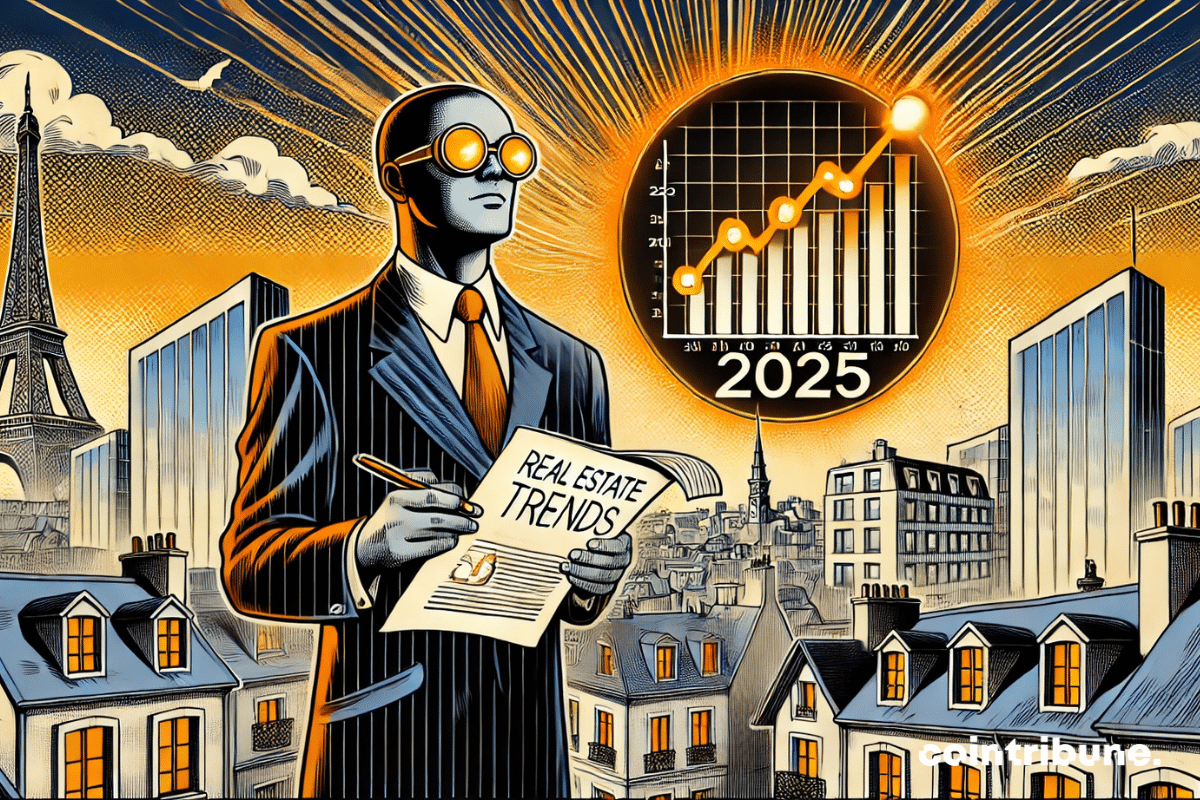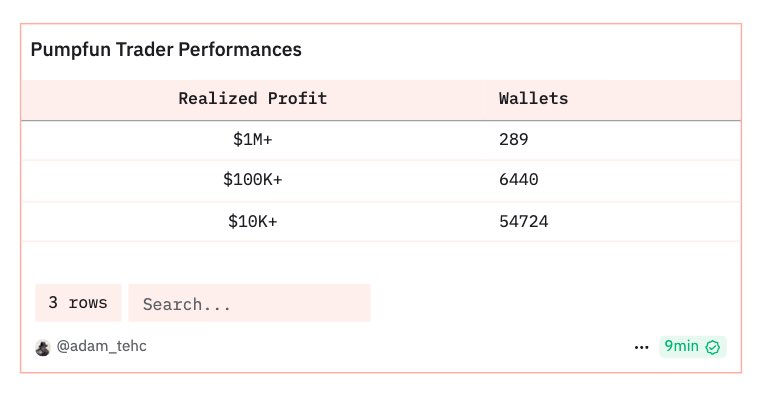Sun 29 Dec 2024 ▪
6
min read ▪ by
The year 2024 marks a major change for the French real estate market. Indeed, the dynamics that have structured this sector for decades are gradually fading, giving way to profound mutations. The massive decline in transactions, the timid rebound of purchasing power in real estate, and the growing importance of energy criteria are reshaping the priorities of buyers and sellers. These transformations go beyond the figures: they reflect the cumulative impacts of the crisis that began in 2022 and economic uncertainties. Through its 2024 Real Estate Report, the Notaries of France shed light on these contrasting evolutions. Their analysis goes beyond simple observation. It explores short-term perspectives and opens avenues for a potential recovery in 2025. These projections illuminate immediate challenges, as well as the necessary adaptations to face a market in full transformation.


An unprecedented decline in transactions
The figures revealed by the 2024 Real Estate Report from the Notaries of France present an unambiguous observation. Indeed, the volume of real estate transactions has fallen to 750,000 sales for the year, marking a decrease of 17 % compared to the 935,000 sales in 2023. This decline is primarily explained by the combination of two major factors: the continuous rise in interest rates, which heavily impacts households’ borrowing capacity, and an economic climate marked by high uncertainty. Such unfavorable conditions hinder purchasing decisions and disrupt the habits of a market in adjustment.
The comparison with previous years further highlights the extent of this contraction. In 2021, the market reached a historic peak with 1.2 million transactions, before the first signs of a slowdown appeared in the summer of 2022. “This decline in transactions reflects a growing distrust towards an unstable economic context,” indicate the Notaries of France, who inform about the prolonged effects of this crisis.
However, not all is lost. According to experts, some indicators suggest a gradual stabilization by the end of 2024. Real estate prices are entering a phase of moderation, while a timid resurgence of confidence is felt among households. This trend could lay the groundwork for a recovery in 2025, provided that the economic and political environment stabilizes. “If these trends are confirmed, 2025 could mark a new breath for the market,” estimate the notaries. However, this optimistic scenario relies on cautious assumptions, which opens up opportunities, but also poses challenges for sector players.
A transforming market : new dynamics and priorities
The contraction of the real estate market, nevertheless, comes with positive signs regarding households’ purchasing power. In September 2024, they had increased financing capacity, allowing them to acquire an old apartment of 55 m² or a house of 92 m², representing respective increases of 1 m² and 3 m² compared to 2023. This improvement results from a confluence of favorable factors, including a slight decrease in prices combined with a stabilization of interest rates. However, notaries emphasize that this recovery remains fragile. Thus, any imbalance in the economic context could undermine these recent gains and slow down access to property again.
At the same time, buyers’ priorities are evolving, particularly due to growing environmental concerns. The energy performance of homes is now considered a key criterion in purchasing decisions. Thus, energy-efficient properties, classified A and B, have seen their share increase by 2 points, accounting for 8 % of transactions. Meanwhile, energy-intensive homes, classified F and G, have recorded a significant decrease, representing 13 % of sales compared to 17 % in 2023. This evolution reflects a collective awareness of the economic and ecological advantages associated with better-insulated and more sustainable homes.
Notaries also anticipate that public incentives, such as subsidies or tax breaks, will play a central role in accelerating this transition towards more environmentally friendly real estate. These measures could encourage households to prioritize sustainable housing, while also contributing to the long-term appreciation of their real estate assets. As energy criteria become indispensable, they could deeply reshape the expectations of buyers and the strategies of sellers for the years to come.
The year 2025 could represent a decisive turning point for the French real estate market. A more stable political and economic context, coupled with public policies that support access to building land and the energy transition, could give a new impetus to the sector. However, major challenges remain. The aging of the real estate stock, regional disparities, and the need to bolster the confidence of households and investors remain crucial issues. These transformations require a balanced approach, where adaptation and innovation will be essential to build a market capable of meeting expectations for stability and sustainability.
Maximize your Cointribune experience with our “Read to Earn” program! For every article you read, earn points and access exclusive rewards. Sign up now and start earning benefits.
Diplômé de Sciences Po Toulouse et titulaire d’une certification consultant blockchain délivrée par Alyra, j’ai rejoint l’aventure Cointribune en 2019.
Convaincu du potentiel de la blockchain pour transformer de nombreux secteurs de l’économie, j’ai pris l’engagement de sensibiliser et d’informer le grand public sur cet écosystème en constante évolution. Mon objectif est de permettre à chacun de mieux comprendre la blockchain et de saisir les opportunités qu’elle offre. Je m’efforce chaque jour de fournir une analyse objective de l’actualité, de décrypter les tendances du marché, de relayer les dernières innovations technologiques et de mettre en perspective les enjeux économiques et sociétaux de cette révolution en marche.
DISCLAIMER
The views, thoughts, and opinions expressed in this article belong solely to the author, and should not be taken as investment advice. Do your own research before taking any investment decisions.










